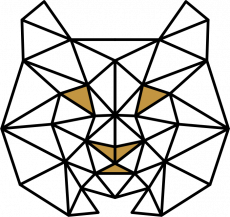
Competition RIS 2024
Competition for developing new analytical methods in medicine
Rezultati drugega kroga
| Ime ekipe | Rezultat | Nagrade [€] |
|---|---|---|
| LaST | 0.7 | 600 |
| NightFoxes | 0.65 | 300 |
| OMA | 0.58 | 150 |
| Yugo | 0.56 | 150 |
| Kolovratezi | 0.55 | 150 |
| vrtoglavazirafa | 0.53 | 150 |
| *Rok za ugovor je 14.05.2021 | ||
Rezultati prvega kroga
| Ime ekipe | Rezultat | Uvrstitev v drugi krog |
|---|---|---|
| Kolovratezi | 0.96 | DA |
| yugo | 0.94 | DA |
| NightFoxes | 0.93 | DA |
| LaST | 0.93 | DA |
| VrtoglavaZirafa | 0.92 | DA |
| OMA | 0.92 | DA |
| Sinogram | 0.91 | NE |
| UneBaguette | 0.91 | NE |
| AurumMalleo | 0.89 | NE |
| AnTimon | 0.88 | NE |
| Tehniki | 0.85 | NE |
| Orhideja | 0.79 | NE |
| Nekoherentni | 0.5 | NE |
| Mia | Brez oddaje | NE |
| AK2 | Brez oddaje | NE |
| * Rok za ugovor je 25. april 2021 do 10:00 | ||
| Komisija: Žan Klaneček, Urban Simončič in Andrej Studen | ||
ORGANISER
DMFA Slovenije
Medical Physics Research Program, FMF UL
INTRODUCTORY LECTURE
March 18th 2024 at 15:00
WHERE?
Online
Beginning of application submission period
February 20th, 2024
End of application submission period
March 16th, 2024
Result announcement
1st level - April 8th, 2024
2nd level - April 26th, 2024
| Level | Date and time of the beginning | Date and time of the end |
|---|---|---|
| 0 - Introductory lecture | Monday, March 18th, 2024, 15:00 | Monday, March 18th, 2024, 17:00 |
| 1. | Monday, March 18th, 2024, 17:00 | Tuesday, April 2nd, 2024, 9:00 |
| 2. | Friday, April 19th, 2024, 9:00 | Friday, April 22nd, 2024, 9:00 |
Application
News
- The introductory lecture will be held on March 18th 2024 at 15.00 via ZOOM
- A lecture on the use of supercomputers (SLING) for solving the challenge will be held on Tuesday, March 19th 2024 at 13.00 VIA zoom. Applications are mandatory and can be done on the following website https://indico.ijs.si/event/2054/
- Link to data for the learning and test sets for the first level: https://labkey-public.fmf.uni-lj.si/labkey/RIS/project-begin.view?
- Data is also available on the grid in /d/hpc/projects/training/RIS/data
The Ris 2022 kick-off lecture will take place on Monday 28 February 2022 at 16:00. The lecture will be streamed in its entirety via Zoom at: https://uni-lj-si.zoom.us/j/94438636009
At the introductory lecture, competitors will learn about:
the background of the medical problem
medical imaging techniques related to the competition
(imaging) data and ethical aspects of the protection of subjects’ personal data
how to evaluate and submit results
The Ris 2022 kick-off lecture will take place on Monday 28 February 2022 at 16:00. The lecture will be streamed in its entirety via Zoom at: https://uni-lj-si.zoom.us/j/94438636009
At the introductory lecture, competitors will learn about:
the background of the medical problem
medical imaging techniques related to the competition
(imaging) data and ethical aspects of the protection of subjects’ personal data
how to evaluate and submit results
Prizes
Prize pool: 2000€
Challenges
Vision and motivation
The execution of the competition
The competition is held in two rounds with an additional introductory seminar. During the introductory seminar, the participants learn about the field and clinical background of the problem. Fundamental concepts, that serve as the basis of the development of algorithms, which are applicable in realistic medical problems, are presented
The competition continues with the first, pre-selection round, where the contestants prepare a proposal of their solution and support it with simplified examples of solutions. Based on the submitted results, innovativeness, appropriateness and effectiveness of the idea are evaluated. The best contestants from the first round advance to the second round of the competition, which serves as the national competition.
In the second round the contestants prepare their solution to the problem, which uses modern analytical technologies, which depend on the chosen challenge. The fulfillment of the objectives is assessed by verification of the solution on real data, which is not accessible to the contestants. The solution is evaluated by a committee of Slovenian experts.
The format of the competition is a hackathon, where the contestants are faced with an open realistic problem and they compete by creating the best solution. They work in groups, suitable for the challenge. They use their own equipment to solve the challenge. In the event of problems, each instance of which is processed individually by the competition’s organisational committee, limited material resources may be supplied by the Faculty of Mathematics and Physics, University of Ljubljana. Contestants can make active use of the Slovenian national supercomputing network (SLING)
Past competitions
RIS 2021 – The contestants faced a challenge on the topic of diagnosis and prognosis of infection with COVID-19. They created an automated solution, that would enable the most reliable prediction of the extent of COVID-19 infection from CT images of lungs and thus help with hospitalisation and treatment decisions. 15 teams totaling 35 contestants entered the competition.
RIS 2022 – The contestants faced a challenge on the topic of diagnosis of Alzheimer’s disease. They created an automated solution, that would enable the most reliable differentiation between AD patients and healthy controls from [18F]FDG PET/CT brain images, thereby enabling the development of successful therapies for AD due to correct inclusion of AD patients in clinical trials. On the patient’s side, better planning of the future according to the expected disease progression. 26 teams totaling 68 contestants entered the competition.
RIS 2023 – The contestants faced a challenge on the topic of breast cancer: What can
Mammograms show us?
Documents
Prosojnice iz predavanj
2. Round
Presentations
Kontakt: ris@dmfa.si